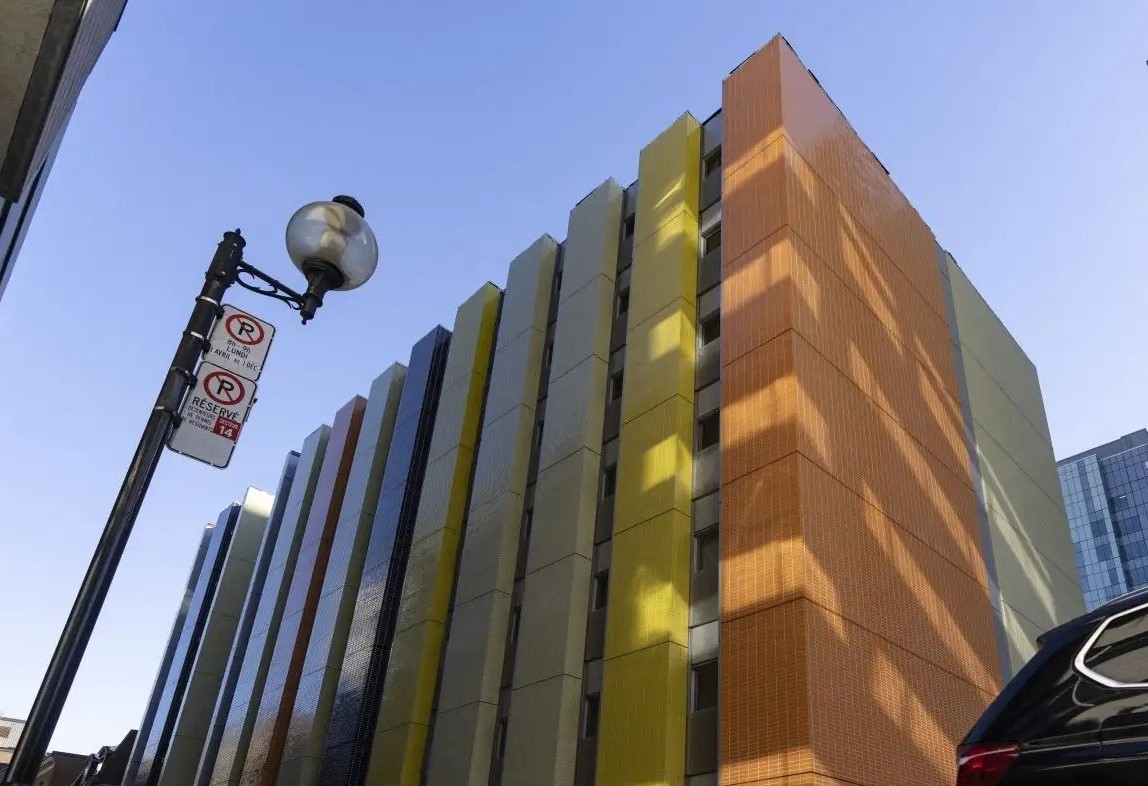
What will happen when tenants from diverse backgrounds move into Montreal’s largest housing building dedicated to fighting homelessness in Quebec? Prof. Eric Latimer, PhD, a professor in the Department of Psychiatry and a research scientist at the Douglas Mental Health University Institute, aims to find out.
He’s been appointed to evaluate Le Christin, a new 114-unit housing project located in downtown Montreal. Approximately 80 per cent of its residents benefit from rent subsidies; the remaining 20 per cent will not. Tenants include a diverse mix of men and women, couples, students, refugees, seniors, members of Indigenous and LGBT2S+ communities, and more.
“The model is certainly new in the Montreal context, to my knowledge,” says Latimer. “There’s usually a fair bit of diversity in housing for people coming out of homelessness; what’s different in this case is that the diversity is really intentional.”
Future findings
 Le Christin was designed by Atelier Big City, whose three partners are all McGill graduates. The building is managed by Accueil Bonneau, a Montreal non-profit organization that supports people dealing with homelessness. They invited Latimer to lead the research project, and he accepted because he himself is interested in the results.
Le Christin was designed by Atelier Big City, whose three partners are all McGill graduates. The building is managed by Accueil Bonneau, a Montreal non-profit organization that supports people dealing with homelessness. They invited Latimer to lead the research project, and he accepted because he himself is interested in the results.
“A lot of my previous work has been focused on the housing-first model, where we help people who’ve been homeless get apartment subsidies on the private rental market where no more than 20 per cent of residents were street-involved before they moved in. This is the opposite of that: we’re putting a lot of people who were street-involved in one building. Initially I had some concerns, so I was curious to see how it would work out.”
The research will consist of interviews conducted with Le Christin’s managers, staff, and residents. All groups underwent interviews when the building opened and will do so again after six months’ time; the goal will be to evaluate the residents’ quality of life.
“What people say in their interviews has the potential to be very illuminating,” says Latimer.“What specific aspects of Le Christin contributed to their quality of life, and what did not?”
Normalizing homelessness is ‘tragic’
It’s a small project with a tight timeline; Latimer’s only collaborator will be Accueil Bonneau, and they aim to produce a scientific article by spring 2025. The findings could inform future housing projects and influence his future research at McGill. “If I discover some really interesting things from the interviews, that could suggest some additional research.”
In the meantime, he worries that Canadians “will get used to the idea that its normal to have people without access to decent housing, and I would find that really tragic. The reality is the great majority of people living in the street do not want to live like that; they would like to live in an apartment like everybody else. I think Le Christin can be part of a comprehensive way of addressing homelessness.”

This sounds like a fantastic project. Thank you, Eric, for testing whether it will work as well as hoped.
Housing the homeless is a social obligation. I am so happy to hear about this project. In my visit to Montreal last October, I was a bit shocked to see the number of homeless on the Streets.
Bravo to our Government and or other responsible institutions and individuals. I am interested to follow the progress of this project.